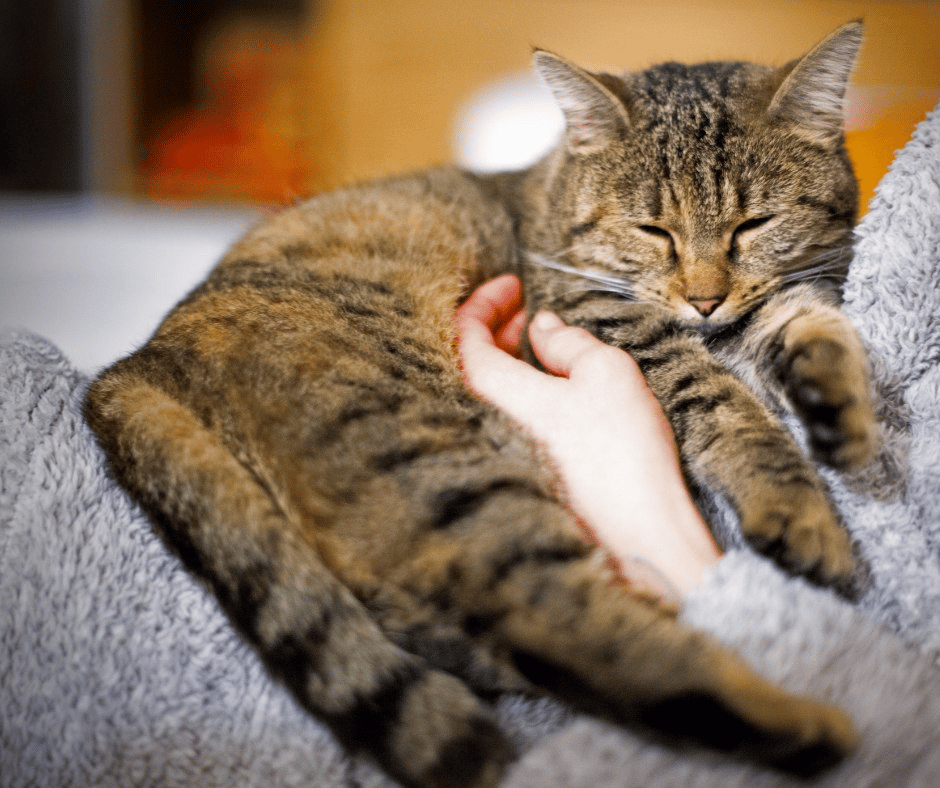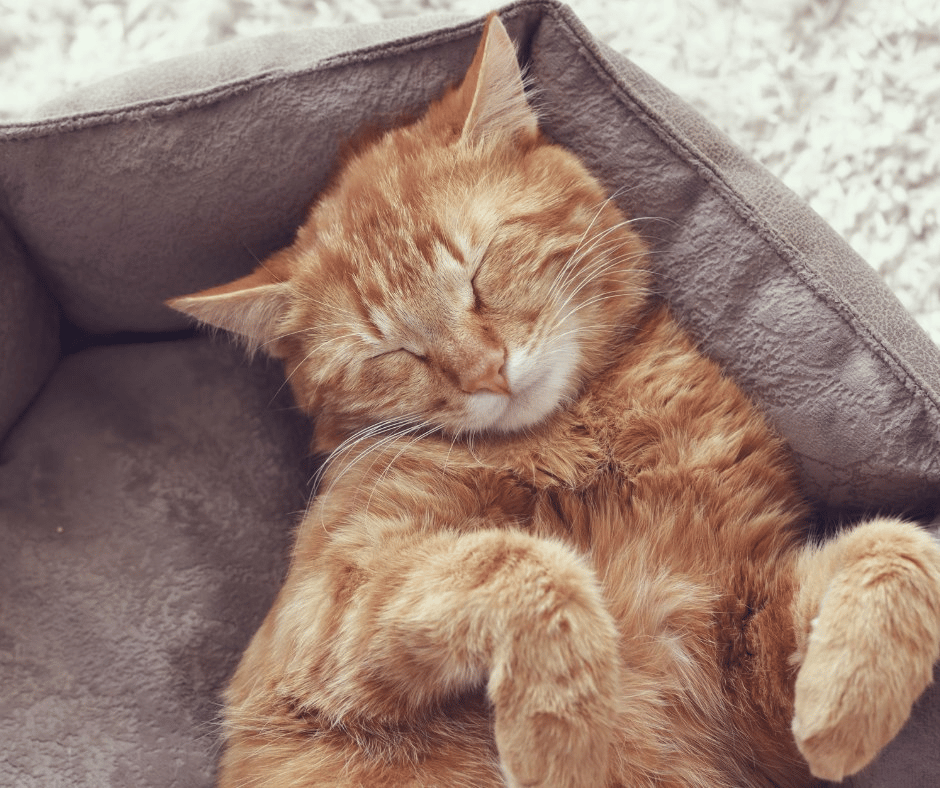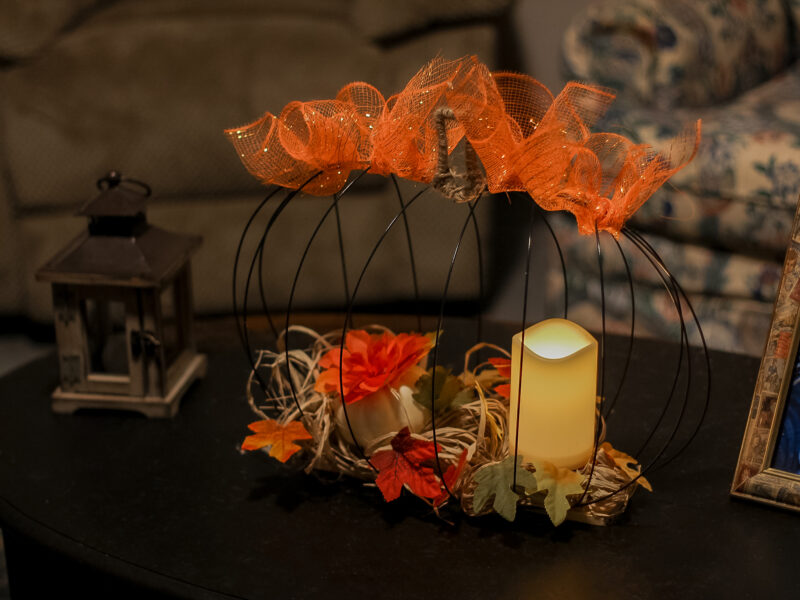Cats That Purr All the Time: Is it Normal?
Cats are some of the most beloved animals in the world, and it’s easy to see why: their big eyes, soft fur, and overall loveable personalities make them great companions. But have you ever heard a cat purr all the time? If so, you might wonder if this is normal behaviour. Is it normal?

In this article, we will explore why a cat purrs and what it means when a cat purrs. We will also examine why some cats purr more loudly than others and if all cats purr. We will also answer questions such as why my cat drools when it purrs and if cats purr when they sleep. By the end of this post, you should better understand why cats purr and why it is normal for them to do so.
Why Do Cats Purr?
Cats are our favourite animals; their purring sound brings us warmth and comfort. Ever wonder why a cat purrs? To cat lovers, the cat’s purr is a comforting and therapeutic sound, but for a cat, it can signal many things – from contentment to distress/physical pain.
It has been suggested that cats’ purring occurs when they breathe in and out at regular intervals, creating vibrations throughout their body that make the familiar noise of their purrs. The valve opens and closes rapidly, allowing air to pass through and producing the familiar purring sound that all cat lovers love!
In contrast, other vocalizations, such as meowing, are typically only produced during the exhaling phase, similar to humans when speaking. The signal for purr travels from the brain to the voice box muscles, instructing them to act as a valve for air flowing past the vocal cords. This action occurs on both inhalation and exhalation, creating an audible purring sound.
Your cat does not control the signals from her central nervous system that tell her to purr, meaning she has the best autopilot setting known to humanity.
Below are some reasons why kittens and adult cats purr. Those reasons are the same for male and female cats across most breeds.
Contents
1. Sign of Relaxation
Another theory is that purring may be a sign of relaxation. When a cat purrs, it often seems to be in a state of contentment and calm. This may be because purring causes a release of endorphins, which are hormones that have been shown to produce feelings of pleasure and relaxation.
2. Way of Communicating
Purring is also a way of communicating. Cats often purr when they are around other cats that they know and trust. This is a way of strengthening the bond between them. Additionally, some experts believe that purring may be a way of asking for help, as it has been shown that kittens who purr loudly are more likely to be fed by their mothers than those who do not.
3. Way of Showing Affection
Purring may also be a way of showing affection. When cats purr around humans, it often seems like they are trying to show appreciation or gratitude. Additionally, some experts believe that purring may be used as a form of self-soothing, as it can help to reduce stress and anxiety levels.
4. Caused by Pleasure or Pain
Purring may also be caused by either pleasure or pain. While most often seen as a sign of contentment, some experts believe cats may also purr when in pain to comfort themselves. Additionally, some research has suggested that kittens begin to purr when they are first born, to let their mothers know they are alive and well.
5. Purring May Have Evolutionary Roots
The act of purring may also have evolutionary roots. Some experts believe that wild cats began to purr to communicate with each other over long distances. Additionally, purring may have helped early cats conserve energy, as it is much less strenuous than meowing.
6. Way of Self-Healing
One theory is that purring may help cats to heal themselves. Studies have shown that the frequency of a cat’s purr is similar to the frequency of vibration that has been shown to promote bone growth and healing. Additionally, purring has been shown to improve circulation and reduce swelling.
What Does Purring Mean for Cats??
Cat purring is one of the most remarkable sounds cat owners become familiar with. Some cat owners find purring so soothing that they use recordings of it as a kind of white noise – almost like an ambient soundtrack! But do cat owners know what their cat is trying to say when they purr? What does it mean when cats purr?
To start, it’s important to note that cats often purr when they feel secure and comfortable and when feeling stress or discomfort. Constant purring could tell us that the cat may need help or medical attention.
It’s also believed that cats can alter frequencies in their purrs to communicate specific requests or needs such as food, comfort, or safety; for example, changing from low-frequency pulsations to high-frequency trills if the cat is otherwise unsettled. Purrs are fascinating!
Purring may also have healing properties, as the frequency of a cat’s purr has been shown to promote bone density and tissue repair. Cats may also purr to indicate that they are feeling threatened or scared.
Do All Cats Purr?
As an animal lover, you may have heard the purring sound of a cat and wondered why they purr. Although purring can mean something different depending on the cat, it is generally accepted that cats purr when they are content or happy. The purring sound produced by cats has been studied since 1906, when it was determined to be a constant purring frequency.
Though not all cats purr, studies reveal that over 95% of cats purr. Because of the frequency and vibration of the purrings, scientists believe that cats purr as a form of self-healing. Researchers concede that there may be other reasons for a cat’s purring, but we still do not know all the specifics behind this soothing sound our beloved pets make. Debevere (a cat shelter photographer in London who is currently studying for a degree in feline psychology) states that all cats have their purring behaviours, and some may not purr at all. In contrast, some cats can be heard purring constantly.
If your cat stops purring, it may be concerning to you. But there is no need to worry! The lack of purring usually means they don’t feel the need to. You fulfil all their needs, and they are happy with their environment.
Why Does My Cat Purr So Loudly?
The cat’s purr is one of the most common sounds cat owners recognize—and, at times, it can seem never-ending! But have you ever noticed that some cats purr loudly? There are a few primary reasons behind a cat’s unending purr.
Generally speaking, loud purring indicates contentment; cats also use it as a form of communication with their humans to show love and appreciation. Additionally, cats may try to soothe themselves; sometimes, their loud purrs drown out their anxieties or evoke a sense of comfort.
It’s important to remember that there may be underlying medical causes to consider if your cat’s normal purring is particularly loud and constant.
Why Does My Cat Drool When He Purrs?

Cat ownership is much beloved for the companionship it provides, and one of the most rewarding moments often comes when your cat purrs contentedly on your lap. But why does your cat drool when he’s purring? Cats often release extra saliva as a calming stimulus to relieve stress.
Cat owners may associate this drooling with a happy kitty. Still, it’s just a sign that they are enjoying themselves, blissfully unaware of any potential dangers in their haven. While the cause is not fully understood, there is evidence that suggests hormones like serotonin release stimulated by being around its owner can induce this response in cats. Cat owners can take comfort in knowing their feline friends are feeling secure and relaxed during those precious purr-filled snuggles!
Why is My Cat Purring Constantly?

If your cat has been an infrequent purring machine and keeps producing this sound nonstop, try to observe its overall well-being. If they’re allowed to go outdoors, they could’ve injured their tail or a paw.
Constantly purring could also indicate that your cat loves you and wants to return the affection you give them. However, suppose you’ve noticed other changes in your cat’s behaviour, such as more frequent meowing or being overly persistent with wanting attention. In that case, it could indicate underlying health issues requiring medical attention from a veterinarian.
Do Cats Purr While Sleeping?

The answer is a resounding yes! Cats purr when they sleep, often viewed as a sign of contentment. It’s believed that when cats purr while they sleep, it helps them maintain a regular breathing pattern and can even serve as a form of self-soothing.
Cats may also purr while sleeping to show appreciation for their human caretakers. After all, cats associate their humans with comfort and safety, so purring is easy for them to express their joy.
How to Know if My Cat is Purring Because of Pain?
Knowing whether your cat is purring because of pain or pleasure can be tricky. While both are positive signs that your feline friend is content, it’s vital to discern between them. A surefire way to tell if your kitty is purring due to being in pain is by assessing their overall demeanor. Do they seem calm and relaxed?
Is their body language signalling peace? If not, then your cat is using their purrs as a means of trying to cope with the stressor or discomfort. Another indicator will be if you notice additional vocalizations, such as meowing or growling alongside the purrs. A qualified vet can conduct a physical assessment and determine why your pet may be distressed.
Conclusion:
Overall, purring is a wonderful sign that your cat is content and happy. It’s important to understand why cats purr, as it can help you interpret their behaviour and ensure they are healthy and safe. While loud constant purrs can signal pleasure or pain, observing your cat’s overall demeanor should allow you to distinguish between the two.
If you think your cat is feeling pain, it’s best to contact a veterinarian for a physical assessment. Cats can be amazing companions, and with the proper attention and care, their purrs will be a source of joy for years to come!






